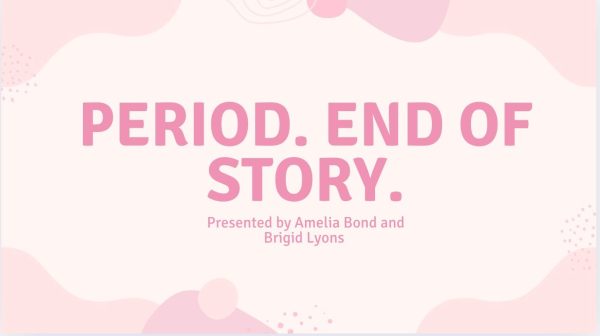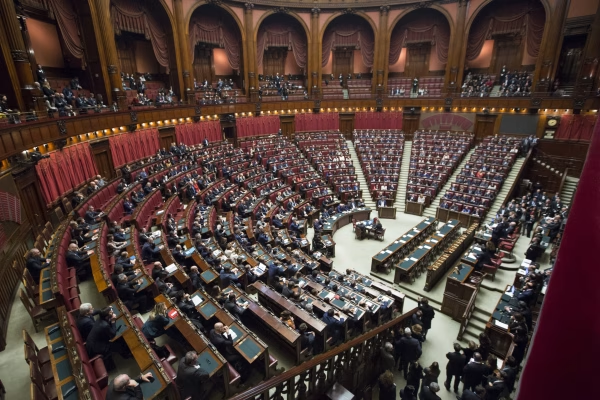Libraries Should Not be “Muted”
Compared to how people received and stored information in the past, we who live in the present are actually quite lucky–technology advancement, digital age, more efficient pace of living…Unlike our ancestors who racked their brains to find a book in the library that has the knowledge they require, why not just simply open up our laptops and browser? We, especially as teenagers, tend to use the internet even more. However, before the birth of the internet and the boost of digitalization, libraries were considered as the main portal for people accessing resources: With the infinite amounts of books they store, libraries carried the demand for the older generation to acquire intelligence. However, with the vast development of the internet, many people started to question the necessity of the existence of libraries. Even though we are stepping forward in the digital age, libraries are still essential in our life for the unique but diverse value it carries.
First, as a student, I have noticed that our group is more concentrated in a peaceful and academic environment, for example, the library. Libraries help us to stay focused, they provide a positive environment to improve learning productivity. According to Anna Williamson, a famous NLP practitioner, “Prolonged silence can increase brain cells and productivity, and it’s actually really beneficial for our mental health and wellbeing to have periods of silence where our brain can effectively relax and allow everything to settle and slow down”(Dray). Libraries contain a much quieter circumstance, which has a particularly significant impact on student groups; its unique but soothing atmosphere allows us to delve into academic fields, creating a positive scene where every individual is working hard to further prompt students’ motivation of studying. The quiet surroundings encourage students to concentrate, thus reducing the possibility of decreasing enthusiasm in learning, which enhances students’ learning efficiency and helps them to form a positive learning habit. Additionally, the popularity of the public libraries also ensures everyone in the community receives an ideal atmosphere to acquire knowledge. Conversely, humans’ attention will be more distracted under a disturbing atmosphere like the internet. Studies examined by the National Center for Biotechnology Information have revealed that the explosion of social media use across, at that time, predominantly younger generations, had led to the average human attention span having dropped from 12 seconds in the year 2000, to just 8 seconds in 2013 (He). Compared to library, learning online fails to ensure a complete non-disturbing environment for student groups since advertisements and spam websites pop up oftenly while students are working on the internet, which distract their focus of studying, thus resulting in a decrease of productivity. With the rapid development of networks and disturbing internet spam, libraries instead provide us a pure land for attentiveness.
Despite libraries’ capability of providing a positive environment, they also guarantee accurate and precise resources and history that online resources cannot achieve. It might be true that people collect more data online other than from actual libraries, and the invention of Google and Wiki makes the process of gaining every piece of materials easier. However, the online resources are not always accurate. The modern network contains both characteristics of openness and freedom; that to be said, the unsecured internet environment also indicates the lack of standardized management of information. Everyone is capable of putting unauthorized or unproven data which can easily mislead viewers on the internet. “In 2021, more than six in 10 internet users saw information or content on online news sites or social media that they considered doubtful or untrue, of which almost two-thirds (64%) checked the truthfulness of the content,” said by CSO statistician Maureen Delamer (62% of internet). On the other hand, the resources from the library are undoubtedly trustworthy: book collections in libraries are strictly selected by the validation of scholarly research; libraries provide authorized pieces of information that are trustworthy by both normal readers and rigorous analysts. Besides, librarians in the real world help people to look for more efficient and accurate information compared to learners searching for an answer from intricate messages online. Libraries are more beneficial than the internet in both accuracy and authenticity. In the digital age that truth is constantly altering, libraries bond us with the feasibility of receiving knowledge with its solid authoritative foundation.
Most importantly, libraries record the traces of human existence in history. Marx Tony, the president of the New York Public Library says. “Their mission is still the same — to provide free access to information to all people. The way people access information has changed, but they still need the information to succeed, and libraries are providing that”(Do We Really). Libraries still retain their status as a data repository even in the arrival of the digital age. The founder of New York public library, Andrew Carnegie also said, “A library outranks any other thing a community can do to benefit its people. It is a never failing spring in the desert” (Do We Really). The libraries don’t only represent the collection of human wisdom, they also symbolize the inheritance of human civilization. Libraries, in cities, physically collect the evidence of human development in the specific area allowing people to have a better understanding of history. The Ebla Library, which can be certified as the oldest library in the world, stores thousands of clay tablets that help the future generations to discover more about this long departed ancient Syrian civilization. However, for the internet, old knowledge can be easily flushed by the vast amount of new information that has been updated. Due to the trendiness of the internet, its limit of processing abundant information as storage makes it unsuitable as a medium for long term memory storage, thus failing to carry such profound documents through human civilization. From the past to present, the library is the one and only system that preserves historical documents in such a unified and relatively complete manner.
Even though social networks have become another form of gaining information, libraries still remain an indispensable presence in human society. The profound value of libraries has been so deeply rooted in the development of our society that sometimes we don’t even notice how much it penetrates our daily life: Access to information, additional tutoring and free space for learning ensure every individual earns a continuous education experience. When I discuss the replacement of libraries in the present, I’m not being a concervative representer that doesn’t welcome the advancement of technology. Instead of that, being able to face the fact about how much libraries mean to us is as important.
Works Cited
Dray, Kayleigh. “Psychology of sound: how total and utter silence actually impacts your ability to concentrate.” Stylist, Sept. 2021,
www.stylist.co.uk/life/careers/silence-concentration-psychology/553510. Accessed 13 Mar. 2022.
He, Barry. “Social media multitasking could affect attention span.” ChinaDaily, 22 Jan. 2021, https://global.chinadaily.com.cn/a/202101/22/WS600a2710a31024ad0baa4577.html Accessed 13 Mar. 2022.
Linton Weeks. “Do We Really Need Libraries?” NPR History Dept, 5 May 2015, www.npr.org/sections/npr-history-dept/2015/05/05/403529103/do-we-really-need-librarie s . Accessed 7 Feb. 2022.
Mohammad Javad Jafari,1,2 Reza Khosrowabadi,3 Soheila Khodakarim and Farough Mohammadian. “The Effect of Noise Exposure on Cognitive Performance and Brain Activity Patterns.” PMC, 30 Aug. 2019,
www.ncbi.nlm.nih.gov/pmc/articles/PMC6901841/ . Accessed 7 Feb. 2022. Pa Media. “62% of internet users saw content they believed was ‘untrue or doubtful’ in 2021.” The journal, 6 Dec. 2021,
www.thejournal.ie/internet-use-untrue-information-cso-5621553-Dec2021/ . Accessed 7 Feb. 2022.
Photo by Janko Ferlič on Unsplash







Michelle Mann • Apr 29, 2022 at 9:12 AM
Wow such a thoughtful and thought provoking piece. Yay libraries!
Mary Bagley • Apr 29, 2022 at 8:29 AM
Grace, You’ve covered lots of the bases here!! I’m a bit biased but I believe that the library is one of the most important of humankind’s creations, for many of the reasons you explained so well. My hope for Bancroft students is that you will always be connected to a great library, in college, graduate school or your community.